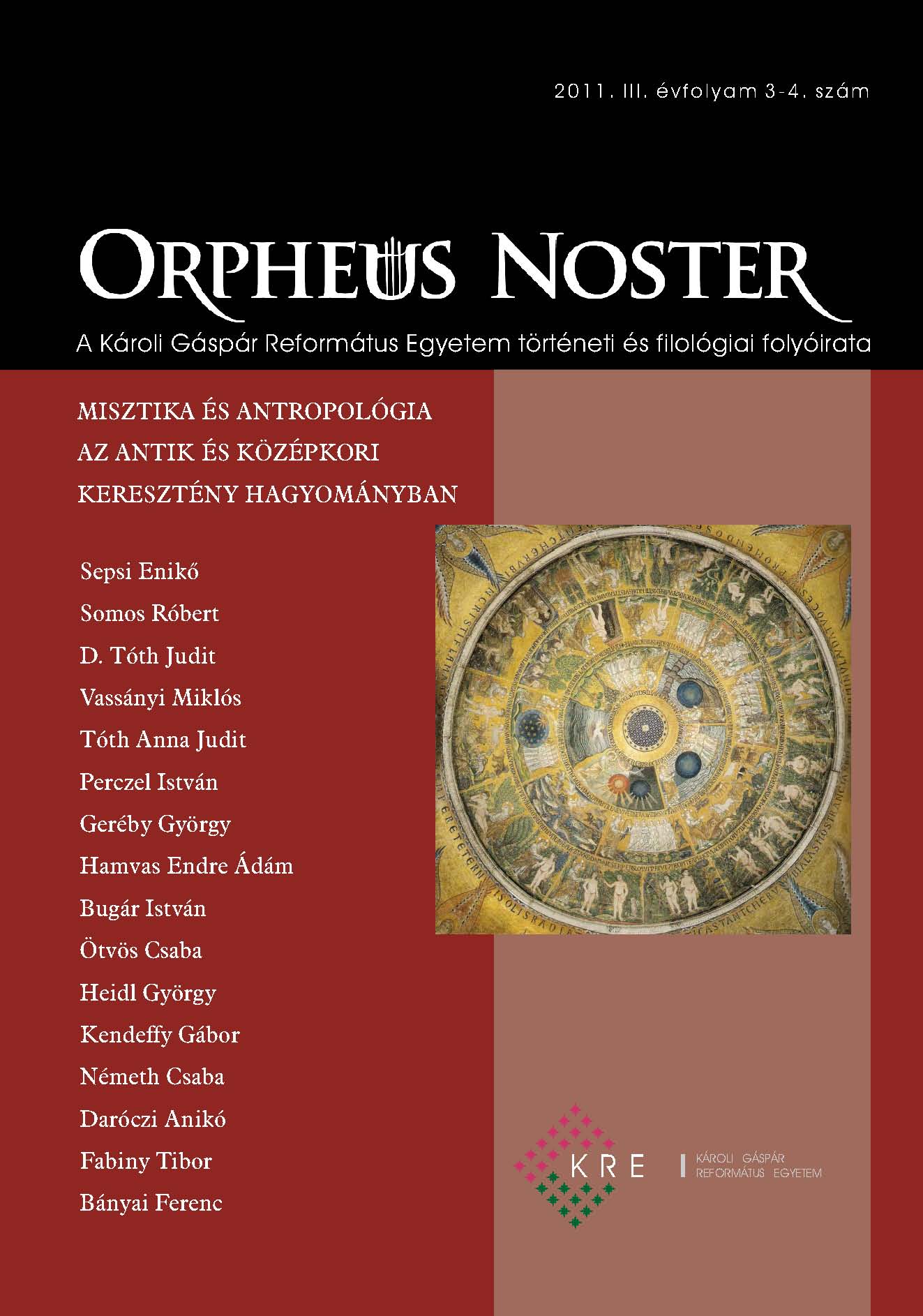Szent Ambrus misztikája és antropológiája a De Isaac et anima alapján
Anthropology and Mysticism in Saint Ambrose’s De Isaac et anima
Author(s): György HeidlSubject(s): Christian Theology and Religion, Philosophy, Theology and Religion
Published by: Károli Gáspár Református Egyetem
Keywords: Ambrose’s mystical-spiritual teaching; Song of Songs; spiritual progress;
Summary/Abstract: This paper aims at summarizing Ambrose’s mystical-spiritual teaching as it emerges from his sermon on Isaac and the Soul, i.e. on the spiritual wedding of Christ-Bridegroom and Soul-Bride. Form and content of the work are strongly connected. Two substantial structural junctions divide the text into three important sections. The first shift is linked with Song 2:11, whereas the second one with Song 5:1. In this way, Ambrose’s basic concept about the three phases of the soul’s spiritual progress, i.e. institutio, profectus and perfectio appears in the threefold structure of the text. The first part is devoted to the theme of preparation, the second to that of progress, while in the third part the idea of perfection is explained. For Ambrose, the Song of Songs is a text that includes teachings on exegetical activity for the reader, on liturgical initiation for the Christian believer, and on the spiritual progress of the soul. Each of these activities reflects the threefold scheme of preparation, advancement, and fulfillment. Exegesis, sacramental community and spiritual exercises are, thus, inseparably connected. The aim of the three activities is to lead the soul from the awareness of the indirect presence of the divine Word to experiencing His direct presence. Ambrose’s mysticism is considered to be sacramental in its nature. In his belief, mysticism is identical to mysterion, that is, to sacrament and initiation into the sacramental life of the Church.
Journal: Orpheus Noster. A KRE Eszme-, Kultúr-, és Vallástörténeti Folyóirata
- Issue Year: III/2011
- Issue No: 3-4
- Page Range: 122-129
- Page Count: 8
- Language: Hungarian

